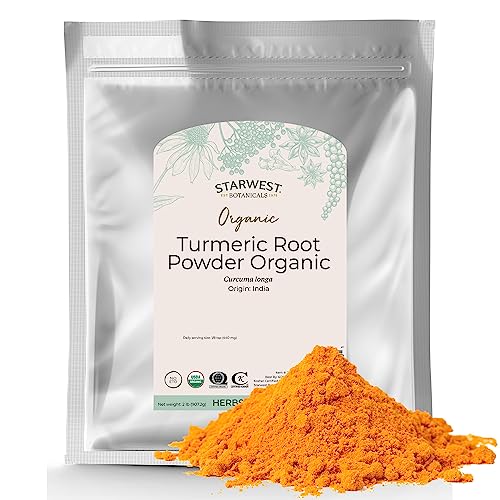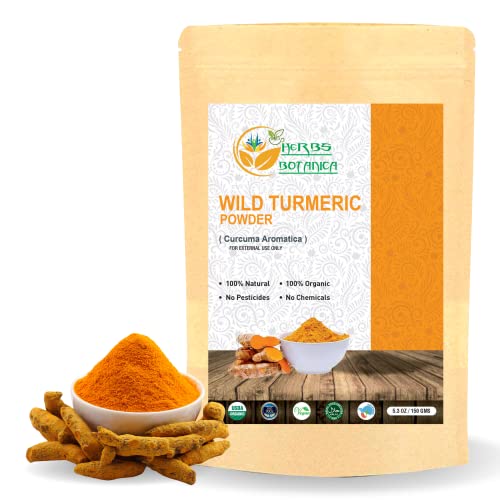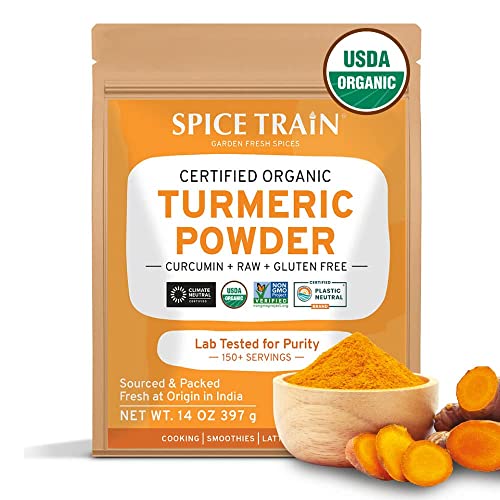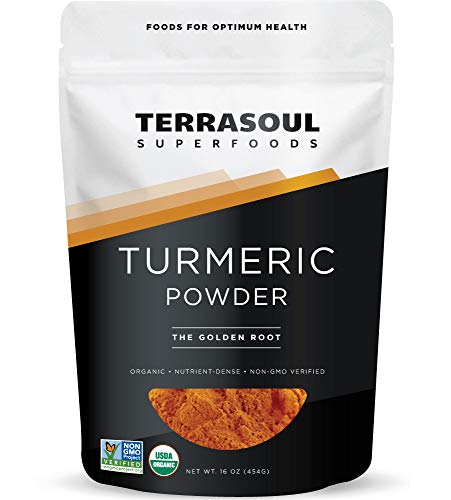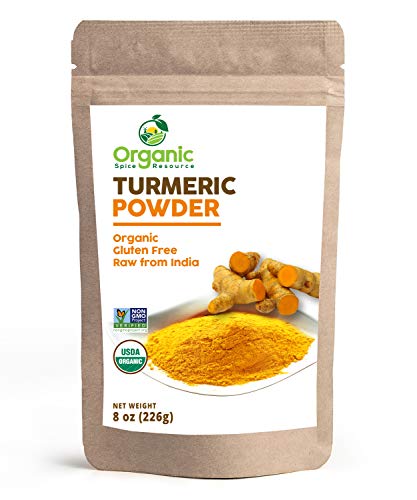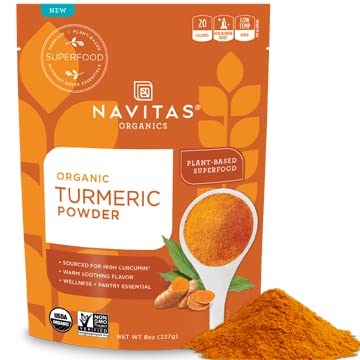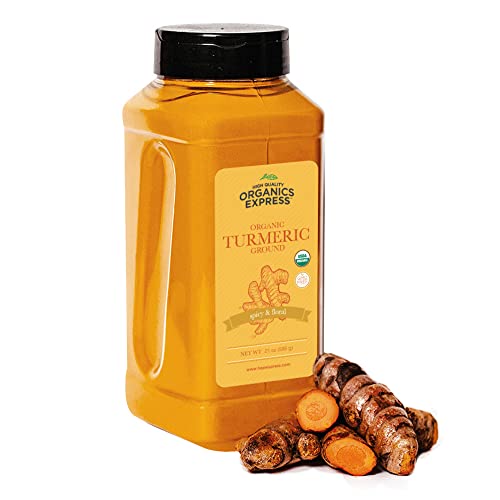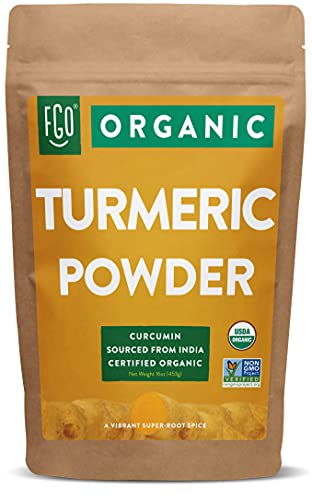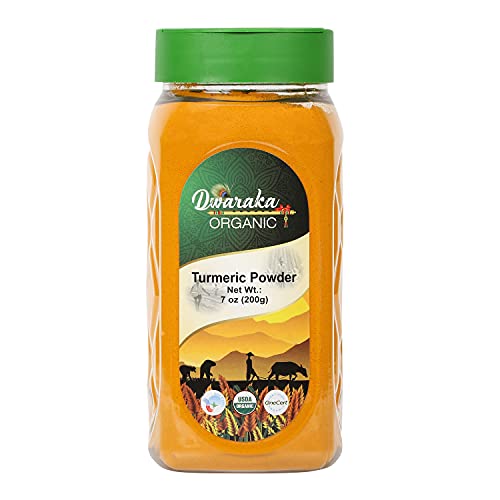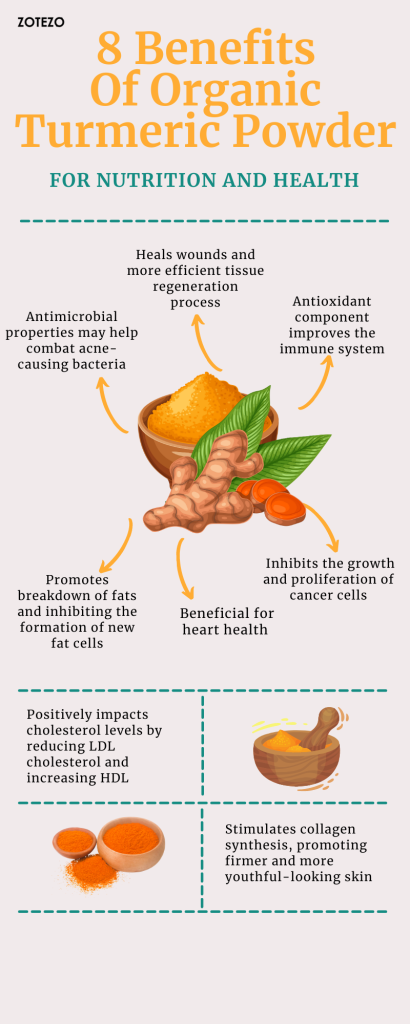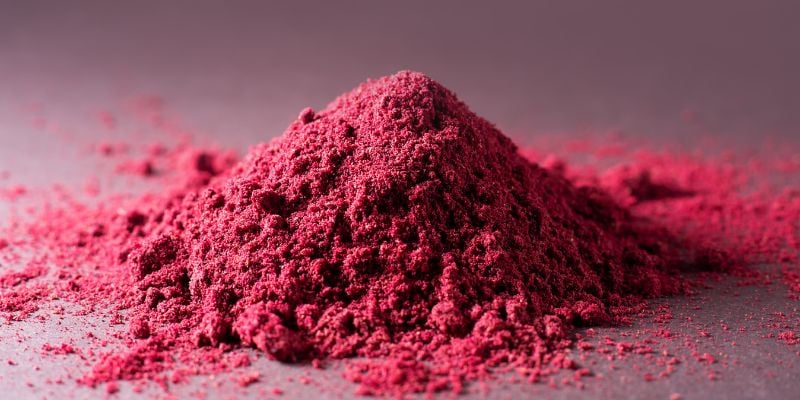Introduction
Organic turmeric powder, derived from the rhizome of the Curcuma longa plant, has been an integral part of traditional medicine and culinary practices in South Asia for millennia. Its vibrant golden color and warm, earthy flavor make it a delightful addition to a wide array of dishes. Beyond its culinary prowess, this versatile spice boasts an impressive array of medicinal properties that have captured the attention of health enthusiasts worldwide. Throughout this blog, we will explore the science-backed health benefits of 8 the best organic turmeric powder in USA, and how to integrate this wondrous spice into your daily routine. We’ll learn about its immunity-boosting effects, its role in promoting joint health, its impact on digestive wellness, and its potential as an antioxidant powerhouse.
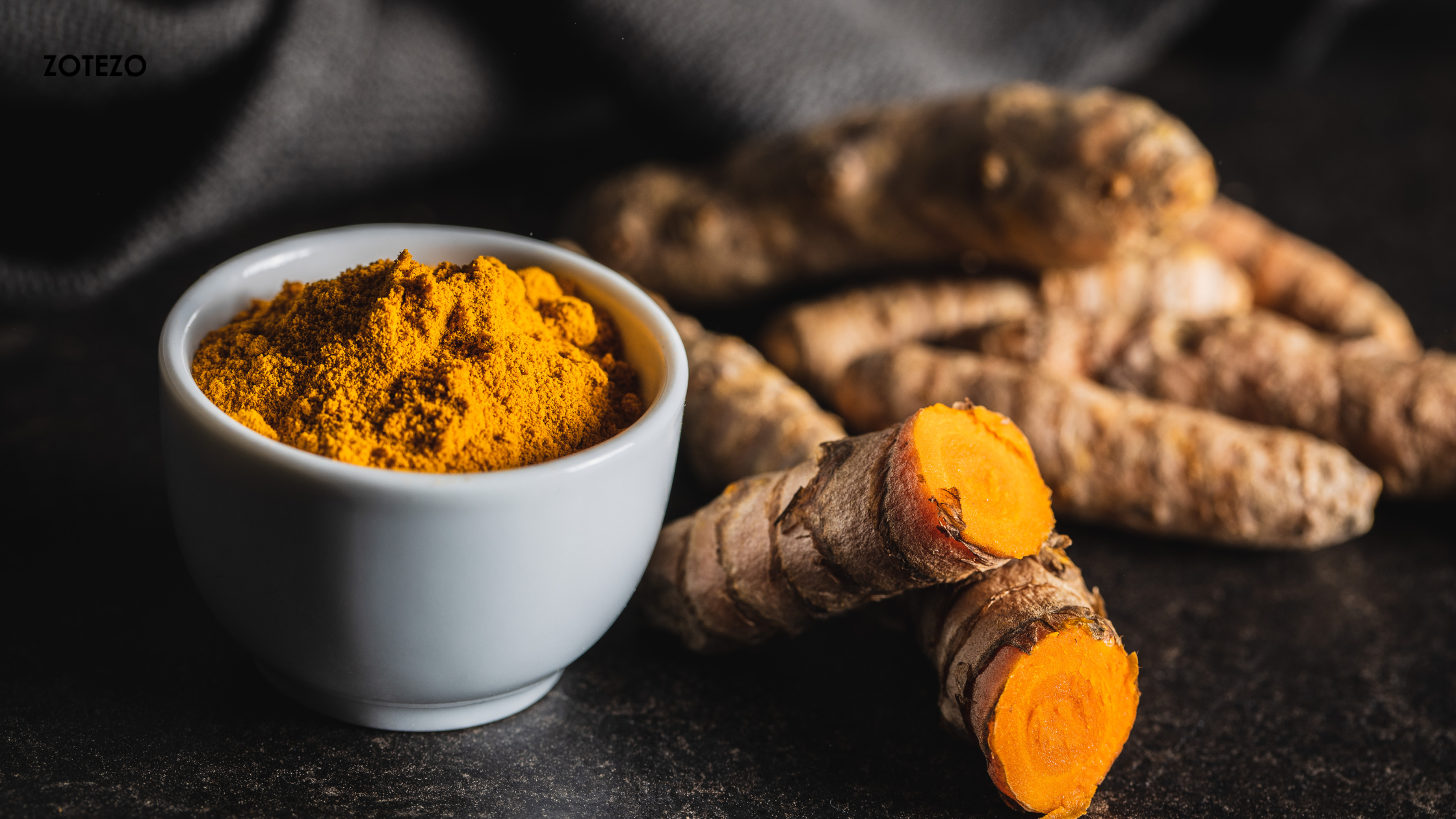
Our pick of the 8 best organic turmeric powder of 2024 in USA
Zotezo Score | Best Organic Turmeric Powder | Lowest Price |
|---|---|---|
|
A |
||
|
A |
||
|
A |
||
|
B+ |
||
|
B+ |
||
|
B+ |
||
|
B |
||
|
B |
||
|
C+ |
Tips for choosing the right organic turmeric powder for you
Before buying the best organic turmeric powder in USA, here are some crucial factors to consider.
Organic
Turmeric powder must be 100 % organic and ground from genuine, natural turmeric harvested in a controlled setting. It’s a good idea to look for organic product certification.
Curcumin content
Curcumin is the primary bioactive compound in turmeric responsible for its numerous health benefits, including its anti-inflammatory and antioxidant properties. A higher curcumin content generally indicates a more potent and effective turmeric powder. The ideal curcumin content in organic turmeric powder can vary depending on factors such as the turmeric variety, growing conditions, and processing methods. However, a general guideline is that high-quality organic turmeric powder should ideally contain a curcumin content of around 3% to 5%.
Color
Organic turmeric powder should have a rich, golden-yellow color. The shade can vary slightly depending on the variety and processing methods, but it should generally resemble a bright and vibrant yellow, akin to the color of fresh turmeric roots. Avoid powders that appear dull, pale, or have a brownish tint, as this might indicate impurities or low-quality turmeric.
Packaging and Labelling
Check the packaging and labeling for information about the product’s source and certification. Look for certifications like “USDA Organic” or “Certified Organic” to ensure that the turmeric powder is genuinely organic and meets certain quality standards. To ensure you’re getting authentic organic turmeric powder, purchase it from reputable stores, markets, or brands that specialize in organic products. Online retailers and health food stores are good places to start.
Aroma and Texture:
While not directly related to color, the aroma of organic turmeric powder is another indicator of its quality. High-quality turmeric should have a distinct earthy and slightly spicy fragrance. It should not smell musty or stale. Pay attention to the texture of the powder. It should be fine and smooth, with no lumps or coarse particles. A well-ground powder suggests that the turmeric was processed properly. When inspecting the color, ensure the powder has a consistent hue throughout. Quality organic turmeric powder should not contain any streaks or patches of different colors.
Starch Test
If you want to be more certain about the authenticity of the turmeric powder, you can perform a starch test. Mix a small amount of turmeric powder with water to create a paste. Apply the paste to a piece of white paper and let it dry. If the turmeric is pure, it will leave a yellow stain on the paper and not show any other colors. This test is more suitable for bulk purchases or when there are doubts about the quality.
Products listed here are carefully reviewed and tested by our expert authors and reviewers. If you buy through links on this page, we may earn a small commission. Here’s our editorial process.
How we reviewed these products
Benefits of using organic turmeric powder
Organic turmeric powder offers a wide range of health benefits due to its active compound, curcumin, as well as other bioactive compounds present in the spice. Here are some of the potential health benefits of using organic turmeric powder:
Healing wound
Turmeric has been traditionally used for wound healing in various cultures for centuries. The healing properties of turmeric are mainly attributed to its active compound called curcumin, along with other bioactive compounds present in the spice. Curcumin has shown antimicrobial activity against various bacteria, viruses, and fungi. When applied topically, turmeric may help prevent infections at the wound site, creating a cleaner environment that allows the wound to heal more efficiently. Turmeric’s anti-inflammatory and antioxidant effects, along with its role in collagen production, contribute to a more efficient tissue regeneration process. This can lead to faster wound closure and reduced scarring. It has the ability to reduce inflammation and may help alleviate pain and discomfort associated with wounds.
Antioxidant property
It also has antibacterial and antioxidant qualities, making it an effective treatment for psoriasis, an autoimmune skin condition. Turmeric’s antioxidant component improves the immune system, allowing it to establish defenses against the impacts of psoriasis and other serious skin conditions. Chronic inflammation is linked to the development of various cardiovascular diseases. Curcumin has potent anti-inflammatory properties, which may help reduce inflammation in blood vessels and heart tissues, thus potentially lowering the risk of heart disease.
Heart disease
Turmeric, specifically its active compound curcumin, has been associated with several heart-protective benefits. Research suggests that incorporating turmeric into your diet may be beneficial for heart health in the following ways:
- Improved Endothelial Function: The endothelium is the inner lining of blood vessels, and its proper function is essential for maintaining healthy blood flow and preventing atherosclerosis (hardening and narrowing of arteries). Studies suggest that curcumin can enhance endothelial function, promoting better blood vessel health.
- Blood Pressure Regulation: Turmeric consumption has been associated with a potential reduction in blood pressure levels. By lowering blood pressure, turmeric may help reduce the strain on the heart and lower the risk of heart disease.
- Cholesterol Management: High levels of LDL (low-density lipoprotein) cholesterol are a significant risk factor for heart disease. Curcumin has been shown to positively impact cholesterol levels by reducing LDL cholesterol and increasing HDL (high-density lipoprotein) cholesterol, which is considered “good” cholesterol.
- Anti-platelet Activity: Curcumin may inhibit platelet aggregation, preventing the formation of blood clots. This anti-platelet activity can be beneficial in reducing the risk of heart attacks and strokes.
- Stabilizing Blood Sugar Levels: Maintaining stable blood sugar levels is important for heart health, especially for individuals with diabetes. Some research suggests that curcumin may help regulate blood sugar levels and improve insulin sensitivity.
- Reduced Cardiac Fibrosis: Cardiac fibrosis is a condition characterized by excessive scar tissue formation in the heart. Curcumin has shown potential in reducing cardiac fibrosis, which can improve heart function and reduce the risk of heart failure.
Anti-aging
Organic turmeric contains a compound called curcumin, which possesses powerful antioxidant and anti-inflammatory properties. These properties are believed to play a role in the potential anti-aging effects of turmeric. Collagen is a protein that provides structure and elasticity to the skin. As we age, collagen production naturally declines, leading to wrinkles and sagging skin. Curcumin may stimulate collagen synthesis, promoting firmer and more youthful-looking skin. Besides, it also enhances collagen production and reduces inflammation can contribute to improved skin elasticity, making the skin feel smoother and tighter.
Curcumin’s anti-inflammatory and antimicrobial properties may aid in wound healing and reduce scarring, which can be beneficial for aging skin that may take longer to heal from injuries. It has brightening and lightening properties that may help even out skin tone and reduce the appearance of age spots and hyperpigmentation, giving the skin a more youthful and radiant look.
Anti-Cancer Properties:
While there is promising evidence from laboratory and preclinical studies, as well as some human trials, it’s essential to approach this topic with caution and recognize that more research is needed to fully understand the extent of turmeric’s effects on cancer prevention and treatment.
- Anti-Proliferative Activity: Curcumin has been shown to inhibit the growth and proliferation of cancer cells in laboratory studies. It may disrupt the signaling pathways that promote cancer cell growth and division.
- Induction of Apoptosis: Apoptosis, also known as programmed cell death, is a natural process that eliminates damaged or abnormal cells. Curcumin has been found to induce apoptosis in cancer cells, potentially preventing their uncontrolled growth.
- Inhibition of Angiogenesis: Angiogenesis is the formation of new blood vessels that supply nutrients and oxygen to cancer cells, enabling their growth and spread. Curcumin may inhibit angiogenesis, limiting the blood supply to tumors.
- Enhanced Chemo- and Radiotherapy: Some studies suggest that curcumin can enhance the effectiveness of chemotherapy and radiation therapy when used in combination. It may sensitize cancer cells to these treatments, making them more susceptible to their effects.
- Metastasis Suppression: Metastasis is the spread of cancer from its primary site to other parts of the body. Curcumin has demonstrated the potential in suppressing the metastatic process by interfering with various molecular mechanisms involved in cancer cell migration and invasion.
Weight Management:
Turmeric, specifically its active compound curcumin, has been studied for its potential effects on weight management. While more research is needed to fully understand the mechanisms involved, here are some ways in which turmeric may contribute to weight management:
- Metabolism Regulation: Curcumin has been found to influence certain metabolic processes in the body. It may help increase the production of heat (thermogenesis) in brown adipose tissue, which can aid in burning calories and regulating metabolism.
- Anti-Inflammatory Effects: Chronic inflammation has been linked to obesity and metabolic disorders. Curcumin’s anti-inflammatory properties may help reduce inflammation, which can be beneficial for weight management.
- Fat Metabolism: Some studies suggest that curcumin may impact fat metabolism, promoting the breakdown of fats and inhibiting the formation of new fat cells.
- Regulation of Blood Sugar Levels: Turmeric may help improve insulin sensitivity and regulate blood sugar levels. Stable blood sugar levels are essential for weight management, as they reduce cravings and promote a more balanced energy level throughout the day.
- Appetite Suppression: Curcumin may have a role in appetite regulation, potentially reducing feelings of hunger and supporting portion control.
- Gut Health: Turmeric’s potential benefits for gut health may indirectly influence weight management. A healthy gut microbiome is associated with better metabolism and overall well-being.
Skin Care:
Organic turmeric can be a wonderful addition to your skincare routine, as it offers several potential benefits for the skin. Turmeric contains a compound called curcumin, which possesses anti-inflammatory, antioxidant, and antimicrobial properties that can help promote healthy and glowing skin. Here are some ways you can use organic turmeric powder for your skin:
- Face Mask: Create a simple and effective face mask by mixing organic turmeric powder with yogurt or honey. Apply the mixture to your face and leave it on for about 10-15 minutes before rinsing off with warm water. This mask can help brighten the complexion, reduce redness, and provide a natural glow to the skin.
- Acne Treatment: Turmeric’s antimicrobial properties may help combat acne-causing bacteria. Make a paste using turmeric powder and water, and apply it to acne-prone areas. Allow it to sit for 10-15 minutes before rinsing off. Always do a patch test first, as some people may be sensitive to turmeric and experience skin irritation.
- Scar and Dark Spot Treatment: Turmeric’s anti-inflammatory properties may help fade scars and dark spots over time. Create a paste using turmeric powder and water, and apply it to the affected areas. Leave it on for 10-15 minutes before rinsing off.
- Exfoliating Scrub: Combine organic turmeric powder with chickpea flour and a little milk to create an exfoliating scrub. Gently massage the mixture onto your face in circular motions, then rinse off with water. This scrub can help remove dead skin cells and leave your skin feeling smooth and refreshed.
- Sunburn Relief: Turmeric’s anti-inflammatory properties may help soothe sunburned skin. Mix turmeric powder with aloe vera gel and apply it to the affected areas for cooling relief.
Side-effects of using Organic Turmeric Powder
Organic turmeric powder is generally safe when consumed in moderate amounts as part of a regular diet. It has been used as a culinary spice and traditional remedy for centuries. However, like any supplement or herb, turmeric may cause side effects in some individuals, especially when consumed in large quantities or taken in concentrated forms. Here are some potential side effects of organic turmeric powder:
- Stomach Upset: Turmeric may cause gastrointestinal discomfort, such as stomach pain, bloating, or diarrhea, in some individuals, especially if taken in excessive amounts.
- Allergic Reactions: Some people may be allergic to turmeric, leading to symptoms like skin rashes, itching, or hives. Allergic reactions can vary in severity, and if you experience any unusual symptoms after consuming turmeric, discontinue its use and seek medical attention if necessary.
- Interactions with Medications: Turmeric may interact with certain medications, such as blood thinners (e.g., warfarin) or medications that slow blood clotting. Taking turmeric alongside these medications may increase the risk of bleeding. It’s essential to consult a healthcare professional if you are taking any medications before adding turmeric supplements to your routine.
- Gallbladder Issues: Turmeric may worsen gallbladder problems in some individuals, particularly those with gallstones or other gallbladder disorders.
- Risk during Pregnancy and Breastfeeding: While turmeric is generally considered safe in small amounts as a culinary spice, pregnant and breastfeeding women should avoid turmeric supplements or large amounts of turmeric in their diet, as it may stimulate contractions or affect hormone levels.
- Iron Absorption: Turmeric contains compounds that may inhibit the absorption of dietary iron. If you have iron deficiency or anemia, it’s advisable to consume turmeric separately from iron-rich foods or supplements.
- Kidney Stones: Turmeric contains oxalates, which can contribute to the formation of kidney stones in susceptible individuals.
- Excess Curcumin Intake: High doses of curcumin supplements may lead to potential adverse effects, including headaches, nausea, and skin rashes.
Recommended Dosage of Organic Turmeric Powder
The appropriate daily intake of turmeric powder can vary depending on factors such as individual health status, age, weight, and the purpose for which you are taking it. Additionally, the concentration of curcumin (the active compound in turmeric) in different turmeric powders can vary, which can impact the dosage.
Culinary:
As a culinary spice, incorporating 1 to 3 grams (approximately 0.5 to 1.5 teaspoons) of turmeric powder into your daily cooking is considered safe and beneficial. This amount is typical for adding flavor to dishes and enjoying the potential health benefits of turmeric as a part of a balanced diet.
Health:
For those using turmeric for specific health purposes or as a supplement, the dosages can range from 400 to 600 milligrams of curcumin (the active compound in turmeric) two to three times a day. This can vary based on the concentration of curcumin in the turmeric supplement and individual health goals.
How to consume Organic Turmeric Powder
Organic turmeric powder is incredibly versatile and can be used in various ways to add a healthy and flavorful twist to your meals and beverages. Here are some creative and delicious ways to incorporate organic turmeric powder into your daily routine:
Golden Milk (Turmeric Latte):
Golden milk is an excellent way to incorporate the health benefits of organic turmeric powder into your daily routine while enjoying a delicious and comforting beverage. Also known as turmeric latte, is a soothing and nourishing beverage with a vibrant golden color. prepare soothing and nourishing golden milk by mixing organic turmeric powder with warm milk (dairy or plant-based) and a dash of black pepper (to enhance curcumin absorption). Sweeten with honey or maple syrup and add a pinch of cinnamon for extra flavor. Cheers to good health and a delightful golden experience!
Turmeric Tea:
Making tea using organic turmeric powder is a delightful and healthful way to enjoy the benefits of this golden spice. Turmeric tea, often referred to as “Golden Tea” or “Turmeric Latte,” is a soothing and aromatic beverage that can be enjoyed at any time of the day. Brew a simple turmeric tea by combining hot water with a teaspoon of organic turmeric powder, a slice of fresh ginger, and a squeeze of lemon. Let it steep for a few minutes and enjoy a refreshing and healthful beverage.
Cuisines:
Turmeric is a staple spice in curry dishes. Add organic turmeric powder to your vegetable, chicken, or lentil curries for a delightful golden color and a warm flavor. Sprinkle organic turmeric powder over roasted vegetables like cauliflower, sweet potatoes, or carrots to elevate their taste and appearance. Stir turmeric powder into rice or quinoa while cooking to impart a lovely golden color and subtle taste in dishes like rice pilaf. You can mix a small amount of turmeric powder into homemade salad dressings for a touch of earthiness and color. A pinch of organic turmeric powder into scrambled eggs or frittatas gives them a beautiful hue and an earthy flavor.
Smoothies:
Boost your smoothies with a teaspoon of organic turmeric powder to enjoy its health benefits alongside your favorite fruits and greens. Incorporating organic turmeric powder into smoothies is a fantastic way to add a boost of flavor, color, and health benefits to your favorite blended drinks. The earthy and slightly spicy taste of turmeric pairs well with various fruits, greens, and other smoothie ingredients.
Face Pack:
Combine organic turmeric powder with yogurt, neem paste or honey to create a natural face mask with potential skin benefits. It provides nourishment and hydration to your face and locks the moisture beneath the layer of your skin. Turmeric powder adds a glow to the face by removing dead cells from your face.
Understand the who, what & why behind your favourite products
Brand Values | Product Philosophy | Product USPs
Read brand stories, their raison-d'etre, and understand what drives them to caringly create the highest quality products for your well-being.
Brand stories
Frequently asked questions on organic turmeric powder
1. Is it safe to eat organic raw turmeric?
2. How can I use turmeric for skincare?
3. Is turmeric safe during pregnancy?
4. How can I use organic turmeric powder?
5. Is it safe to use turmeric powder as a face mask for all skin types?
6. Can turmeric powder be used to clean and disinfect surfaces?
7. Can turmeric powder be used to whiten teeth?
8. where can I buy organic turmeric powder?
Expert reviews you can rely upon
Expert Insights | Product Reviews | Connect with Experts
Gain valuable insights and read unbiased product reviews by subject matter Experts on Zotezo, the ultimate trust commerce platform, that empowers millions globally to make informed decisions for their wellbeing.
Expert Advisory
Conclusion
Organic turmeric powder is a powerful and versatile spice that offers an array of health benefits. Its active compound, curcumin, boasts potent anti-inflammatory, antioxidant, and antimicrobial properties, making it a valuable addition to a balanced diet and wellness routine. From promoting heart health and aiding in weight management to supporting radiant skin and potentially offering anti-cancer effects, turmeric powder has earned its reputation as a “superfood.” Embrace the natural goodness of organic turmeric powder to enhance your overall well-being and savor the richness of its golden hue in culinary delights.
If you found this article helpful and managed to choose the best organic turmeric powder for you, leave us a comment below and follow us for more such amazing science-backed-up wellness content.

